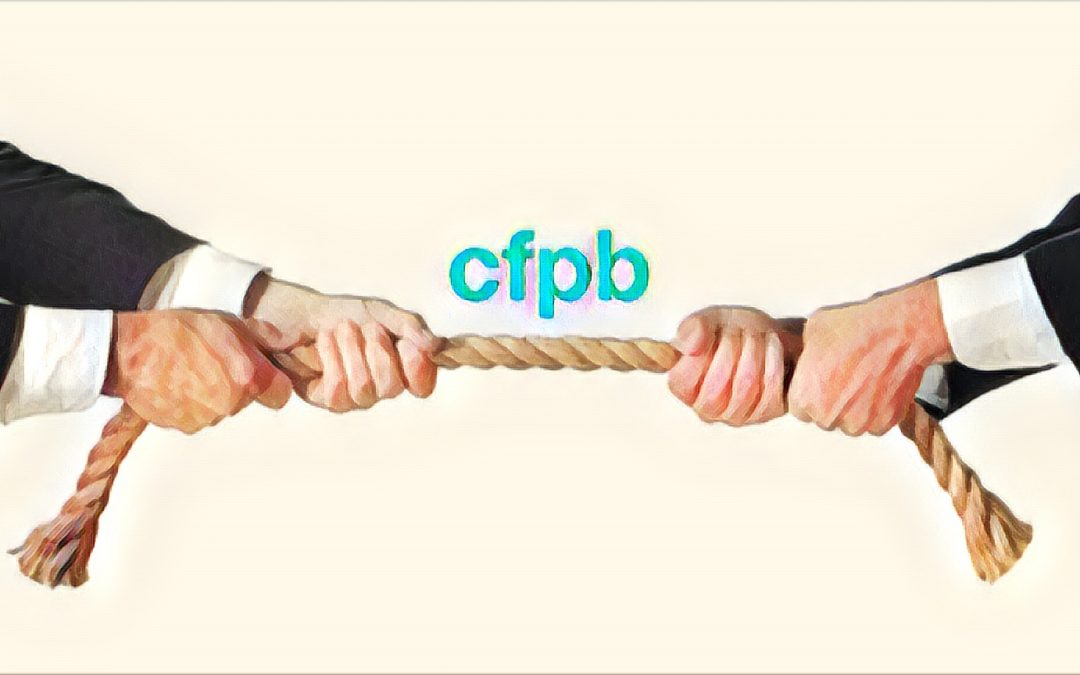UPDATE: On February 16th, the D.C. Circuit court announced that it would rehear the PHH case en banc. Its previous ruling is now vacated, including the Court’s holding that the structure of the CFPB is unconstitutional. The constitutionality question is expected to be the center of discussion on rehearing. The rehearing will take place May 24th. In three months, the CFPB before the D.C. Circuit might be quite different than the current form of the agency.
Recently, the Consumer Financial Protection Bureau (CFPB) received increased scrutiny from all three branches of the federal government. Now facing an uncertain future, the agency could see changes relatively soon. What will be the fate of the CFPB?
What is the CFPB
The CFPB is an independent federal agency under the Federal Reserve system and charged with enforcing consumer protection laws and monitoring consumer activity in the financial marketplace. It is a relatively young agency created under Title X of 2010’s Dodd-Frank Wall Street Reform and Consumer Protection Act. The agency came into being following the events that led to the Great Recession a few years prior. The CFPB possesses investigative, enforcement, and rulemaking powers over certain financial institutions.
CFPB Unique Structure
Recent discussion about the agency’s structure and power began with the D.C. Circuit Court’s decision in PHH v. CFPB in October 2016. In its decision, the D.C. Circuit held that the management structure of the CFPB is unconstitutional. The court noted that the executive power of the federal government typically rests with the President of the United States. However, there are a few independent federal agencies wherein agency leadership can only be removed by the President “for cause.” Examples include the Securities and Exchange Commission, the Federal Trade Commission, and the CFPB. These commissions are typically overseen by a diverse board of industry professionals, each providing a check on the power of other commissioners. Except for the CFPB- the CFPB is led by a single director, Richard Cordray, that can only be fired by the President “for cause.” Since there is no check to Director Cordray’s executive power, the D.C. Circuit ultimately ruled the CFPB’s structure unconstitutional. To remedy this structural flaw, the court severed the “for cause” requirement from Title X of the Dodd-Frank Act. Under the circuit court’s decision, the director of the CFPB would now serve at the leisure of the President.
The PHH case has not finished its journey through the federal court system. Earlier this month, a number of state Attorney Generals (AGs), U.S. Senators, and consumer advocacy groups petitioned to intervene in the case. That petition was summarily declined by the D.C. court. Just a few days ago, this same group of Congresspersons, state AGs, and consumer protection organizations petitioned the full D.C. Circuit Court to reconsider its decision again.
The Congressional defense of the CFPB is being led by two Democrats, Sen. Sherrod Brown (D- OH) and Rep. Maxine Waters (D- CA). Their intervention in the PHH case is born from a concern that President Trump will let his distaste for the CFPB lead to a policy that abandons the agency’s position in court. President Trump’s contempt for the CFPB and Dodd-Frank extend back to his presidential campaign. While the president has remained mostly silent on the CFPB since taking office last month, he did issue a memorandum on February 3rd promising more accountability from federal financial regulators.
CFPB Current Developments
Though President Trump has been mostly mum on the CFPB’s future, a flurry of activity in Congress foreshadows at least a certain degree of agency restructuring. Sen. David Purdue (R- GA) introduced a bill this week that would place control of the CFPB’s budget in the hands of Congress. With this budget control, Congress could exact a major impact on the scope, strength, and size of the agency. Interestingly, one of the bills co-sponsors, Sen. Ted Cruz (R- TX), introduced a bill less than 24 hours earlier that seeks to abolish the CFPB entirely.
Within the House, Rep. Jeb Hensarling (R-TX), Chairman of the House Financial Services Committee, continues his crusade to completely recondition the Dodd-Frank Act through legislation he calls the the Financial CHOICE Act. Last week a memo written by Rep. Hensarling circulated around the House spelling out his proposal to overhaul the Dodd-Frank Act. In particular, Rep. Hensarling seeks to limit CFPB to investigative and enforcement actions, removing the agency’s rulemaking authority, consumer complaint database, and making the director serve at the leisure of the President. Rep. Hensarling is hoping to introduce his legislation in the next few weeks.
Uncertainty abounds around the destiny of the CFPB. Check back frequently at www.nativefinance.org for up to date information on the regulatory future of online lending.


